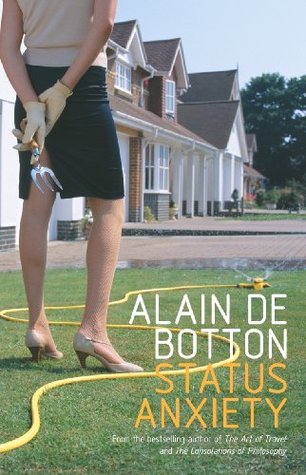More on this book
Community
Kindle Notes & Highlights
The distinctive mark of snobs is not simple discrimination, it is an insistence on a flawless equation between social rank and human worth.
‘It is clear that some men are by nature free and others are by nature slaves, and that for these latter, slavery is both expedient and right,’ Aristotle had declared in his Politics (350 BC) – to the approval of almost all Greek and Roman thinkers and leaders.
The image suggested that everyone in society had been allotted an unalterable role and that it would have been as peculiar for a peasant to request to take up residence in a manor-house and have a say in government as for a toe to want to be an eye.
‘With no attempt there can be no failure and with no failure no humiliation. So our self-esteem in this world depends entirely on what we back ourselves to be and do. It is determined by the ratio of our actualities to our supposed potentialities. Thus:
Rousseau’s argument hung on a thesis about wealth: that wealth does not involve having many things. It involves having what we long for. Wealth is not an absolute. It is relative to desire. Every time we seek something we cannot afford, we grow poorer, whatever our resources. And every time we feel satisfied with what we have, we can be counted as rich, however little we may actually own. There are two ways to make people richer, reasoned Rousseau: to give them more money or to restrain their desires.
Michael Young, The Rise of the Meritocracy (London, 1958): ‘Today all persons, however humble, know they have had every chance … If they have been labelled “dunce” repeatedly they cannot any longer pretend … Are they not bound to recognize that they have an inferior status, not as in the past because they were denied opportunity, but because they are inferior?’
We contemplate the future in the knowledge that we may be thwarted by colleagues or competitors, we may find we lack the talents to fulfil our chosen goals or we may steer into an inauspicious current in the swells of the market place – any failure being compounded by the possible success of peers. Anxiety is the handmaiden of contemporary ambition because livelihoods and esteem depend on at least five unpredictable elements, five reasons not to count on either attaining or holding on to a desired position within the hierarchy.
‘The world more often rewards signs of merit than merit itself.’
It may of course be possible to acquire the velvet gloves and iron fists of a courtier and to learn to navigate around colleagues as we might around a reef-ringed coastline – but the need to do so is scarcely calming. From the perspective of an office or factory floor, it is easy to fathom the lure of three acres, half a dozen ducks and liberty.
Economics] knows the worker only as a working animal – as a beast reduced to strictest bodily needs.’ The wages paid to employees were, said Marx, just ‘like the oil which is applied to wheels to keep them turning. The true purpose of work is no longer man, but money.’
Whatever camaraderie may build up between employer and employed, whatever goodwill workers may display and however many years they may have devoted to a task, they must live with the knowledge and attendant anxiety that their status is not guaranteed – that it remains dependent on both their own performance and the economic well-being of their organizations; that they are hence a means to profit, and never, as they might unshakeably long for at an emotional level, ends in themselves.
When Alexander the Great passed through Corinth, he visited the philosopher Diogenes and found him sitting under a tree, dressed in rags, with no money to his name. Alexander, the most powerful man in the world, asked if he could do anything to help him. ‘Yes,’ replied the philosopher, ‘if you could step out of the way. You are blocking the sun.’ Alexander’s soldiers were horrified, expecting an outburst of their commander’s famous anger. But Alexander only laughed and remarked that if he were not Alexander, he would certainly like to be Diogenes.
We should halt the masochistic process whereby we seek the approval of people before we have asked ourselves whether their views deserve to be listened to; the process whereby we seek the love of those for whom we discover, once we study their minds, that we have scant respect.
Ideology is released into society like a colourless, odourless gas. It is embedded in newspapers, advertisements, television programmes and textbooks – where it makes light of its partial, perhaps illogical or unjust, take on the world; where it meekly implies that it is simply stating age-old truths with which only a fool or a maniac would disagree.
I have a liking for lobsters. They are peaceful, serious creatures. They know the secrets of the sea, they don’t bark, and they don’t gnaw upon one’s monadic privacy like dogs do. And Goethe had an aversion to dogs, and he wasn’t mad.’


